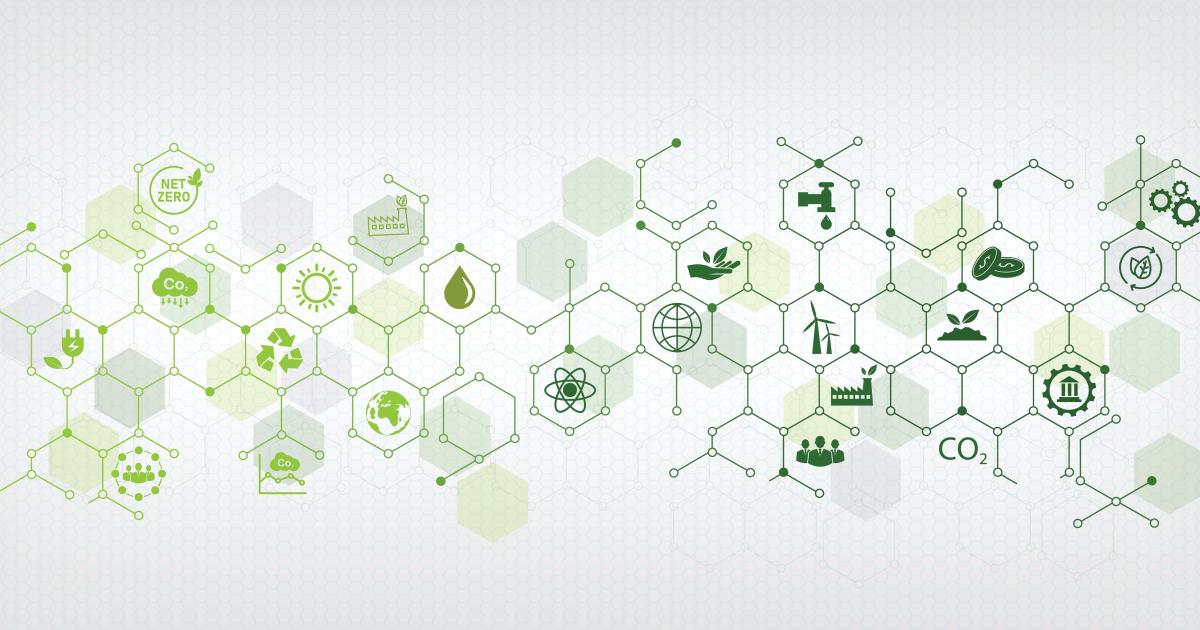
There is no argument against the need to decarbonize our economy if we want an inhabitable planet.
Yet the term "net zero" — shorthand for efforts to balance greenhouse emissions going into the atmosphere with those coming out, as well as the movement to get more organizations working on it — generates a lot of grumbling (maybe "absolute zero" is better), finger-pointing (we need to create regenerative businesses) — and, most worrisome, skepticism.
The skepticism is in large part due to poor performance: Research from Accenture shows that "despite the commitments made … only 7 percent of companies are on track to achieve their net-zero targets for scope 1 and 2 emissions at the observed rates of change. Moving targets to 2050 increases that share just slightly to a mere 8 percent."
So is net zero working?
Let’s first get more specific about what 'net zero' means
Sometimes it's hard to even tell what we’re talking about when we say "net zero" because it’s used differently — and, at worst, in a greenwashing way by major organizations.
At our GreenBiz Net Zero virtual event earlier this month we defined it like this, based on the U.N. net zero coalition work: "Net zero is about reducing an organization’s absolute emissions to support the Paris Agreement target to limit global temperature increases to 1.5 degrees Celsius." (You can watch a playful take on that — or get nostalgic about high school letter jackets — here.)
To bring more clarity, consistency and momentum, when we talk about net zero, we also talk about doing the following three things:
Use net zero in context. Be specific when you mention net zero. For example, try something such as, "In support of our goal to reach net-zero emissions from our supply chain by 2050," or "How can we most efficiently electrify our transportation fleet to meet our net-zero target?"
Break net zero into bite-sized pieces. Your organization’s net-zero emissions goals are a lot to bite off. So break your strategy into four critical action paths, like these: Measure; reduce; offset; and integrate. Be sure to share your progress transparently and frequently, too.
Take the bites. Do the work you can today. And then the next day. Writer and Aikido teacher George Leonard says, "You can't do everything, but you can do one thing, and then another, and another. In terms of energy, it's better to make a wrong choice than none at all."
Case in point: Maersk, the shipping container giant
To see these steps in play, let’s look at the work from think tank Carbon Market Watch, which evaluated the net-zero commitments of 24 multinational companies. Maersk, the global maritime shipping container giant, was the only company evaluated to be of "reasonable integrity," while all the others were assessed as "moderate" to "very low" integrity.
Maersk said in its 2021 sustainability report that it is accelerating its climate ambitions by being net zero across its business by 2040, a full decade earlier than its original commitment of 2050. This 2040 net-zero target centers on the four critical action paths:
-
A reduction of 90 percent to 95 percent of the company’s full value chain emissions sustained by interim targets.
-
Regular measurement and reports on its emissions impact.
-
Offset purchases to the remaining 5 percent to 10 percent of its value chain emissions.
-
Net zero integrated across the business, with transparency and a mapped pathway.
As always, there’s more to do
When in doubt, focus. Commit to reductions, rather than frameworks. Reporting standards and systems are useful tools but not finish lines. Impact is the North Star.
That means, think energy efficiency and grid decarbonization. While carbon removals such as ocean-based sequestration and burying organic sludge may be coming in five or 10 years, that won’t work now.
What do you think? How do you make net zero work for you?
- SEO Powered Content & PR Distribution. Get Amplified Today.
- PlatoData.Network Vertical Generative Ai. Empower Yourself. Access Here.
- PlatoAiStream. Web3 Intelligence. Knowledge Amplified. Access Here.
- PlatoESG. Carbon, CleanTech, Energy, Environment, Solar, Waste Management. Access Here.
- PlatoHealth. Biotech and Clinical Trials Intelligence. Access Here.
- BlockOffsets. Modernizing Environmental Offset Ownership. Access Here.
- Source: https://www.greenbiz.com/article/why-net-zero-still-matters
- :is
- :not
- 1
- 10
- 2050
- 24
- 7
- 8
- 90
- a
- About
- Absolute
- accelerating
- Accenture
- Achieve
- across
- Action
- against
- Agreement
- All
- also
- always
- ambitions
- an
- analysis
- and
- Another
- ARE
- argument
- article
- AS
- assessed
- At
- Atmosphere
- Balance
- based
- BE
- because
- being
- Better
- Break
- bring
- business
- business news
- businesses
- but
- by
- CAN
- carbon
- Celsius
- Centers
- chain
- change
- choice
- clarity
- Climate
- coming
- commit
- commitment
- commitments
- Companies
- company
- Company’s
- Container
- context
- create
- critical
- day
- decade
- decarbonization
- defined
- Despite
- do
- doing
- doubt
- due
- Earlier
- economy
- efficiency
- efficiently
- efforts
- Emissions
- energy
- energy efficiency
- Ether (ETH)
- evaluated
- Even
- everything
- example
- finish
- First
- five
- FLEET
- Focus
- following
- For
- four
- frameworks
- Free
- frequently
- from
- full
- generates
- George
- get
- giant
- Global
- goal
- Goals
- going
- Grid
- Hard
- High
- How
- http
- HTTPS
- if
- Impact
- in
- Increases
- integrate
- integrity
- interested
- interim
- into
- IT
- ITS
- jpg
- just
- large
- latest
- learning
- leonard
- letter
- like
- LIMIT
- lines
- Look
- Lot
- Low
- made
- Maersk
- major
- make
- Maritime
- Market
- Matters
- May..
- maybe
- means
- measure
- Meet
- mention
- mere
- moderate
- Momentum
- Month
- more
- most
- movement
- moving
- multinational
- Need
- net
- net-zero
- news
- Newsletter
- next
- no
- node
- None
- North
- now
- observed
- of
- off
- offset
- on
- ONE
- only
- or
- organic
- organizations
- original
- Others
- our
- out
- paris
- Paris Agreement
- part
- pathway
- percent
- performance
- pieces
- planet
- plato
- Plato Data Intelligence
- PlatoData
- Play
- Point
- poor
- Progress
- purchases
- Rates
- rather
- reach
- reasonable
- reduce
- reducing
- reductions
- regenerative
- remaining
- removals
- Reporting
- Reports
- s
- Said
- say
- says
- School
- scope
- see
- Share
- Shipping
- shorthand
- Shows
- Skepticism
- So
- something
- specific
- standards
- Star
- Steps
- Still
- Strategy
- such
- supply
- supply chain
- support
- sure
- Sustainability
- sustainable
- sustained
- Systems
- T
- Take
- Talk
- talking
- tank
- Target
- targets
- teacher
- tell
- term
- terms
- than
- that
- The
- their
- then
- These
- thing
- things
- think
- think tank
- this
- those
- three
- to
- today
- too
- tools
- track
- Transparency
- transparently
- transportation
- Trends
- try
- used
- value
- very
- Virtual
- want
- was
- Way..
- we
- weekly
- WELL
- were
- What
- when
- which
- while
- why
- with
- Work
- working
- Worst
- writer
- Wrong
- years
- you
- Your
- zephyrnet
- zero





